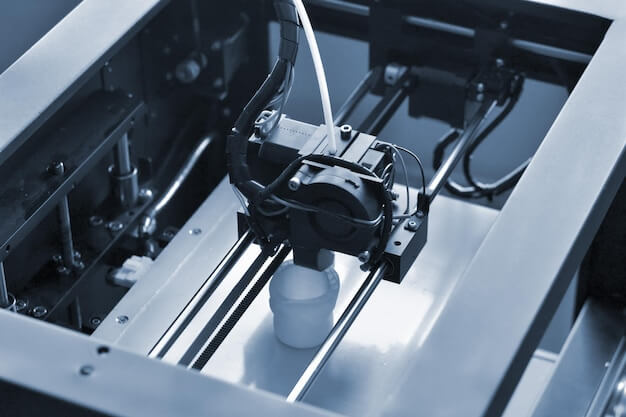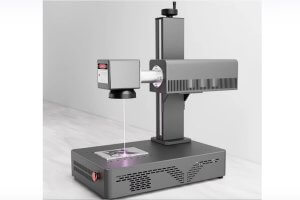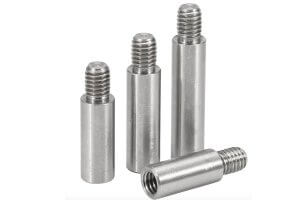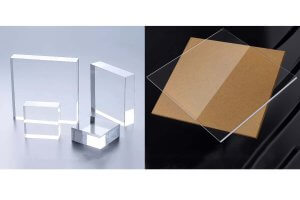Introduction to Tool Steel
In the field of machining, tool steel plays a vital role due to its unique properties. Essentially, tool steel is a type of carbon alloy steel known for its distinctive hardness, resistance to abrasion, and ability to withstand high-temperature conditions. These attributes make it highly favorable in manufacturing tools, molds, and dies used in various industries.
Tool Steel And CNC Machining
The connection between CNC (Computer Numerical Control) machining and tool steel is significant. In CNC machining, pre-programmed software dictates the movement of factory machinery and tools; this is where tool steels like D2 and A2 come into play. Used as primary materials in fabricating machine parts, these tool steel grades can remarkably endure wear and tear, extending the lifespan of CNC machines. Let’s explore how each grade differs:
- D2: This air-hardened tool steel is resistant to wear and renowned for its long service life. It’s often used for making large, complex shapes due to its excellent dimensional stability.
- A2: Air hardening tool steel A2 offers exceptional toughness and a balanced mix of wear resistance. It’s easier to process than D2 but boasts a strikingly similar performance in terms of durability.
Understanding D2 Grade Tool Steel
The D2 grade tool steel, categorized as an air-hardening, high-carbon, and high-chromium type of tool steel, exhibits a perfect balance between hardness and toughness. This fine-grained material resists wear incredibly well due to its ability to retain a sharp cutting edge despite extensive use. It’s distinguished by its excellent dimensional stability in hardening— a characteristic directly tied to its minimal distortion during heat treatment.
In the manufacturing industry, D2 grade tool steel is commonly employed for its durability and resistance to abrasion. Utilized widely in diverse fields such as blanking dies, forming rolls, trim dies, shear blades, and powder compaction tooling. Its robust nature perfectly suits long production runs in challenging materials like carbon steel, alloy steel, nickel-based alloys, and stainless steel.
Understanding A2 Grade Tool Steel
A2 grade tool steel is a versatile, air-hardening type of cold-work tool steel. This roll essentially contains 5% chromium and can yield high hardness after heat treatment with outstanding dimensional stability during the process. The main constituents of this alloy are Carbon (1%), Manganese (.6%), Silicon (0.3%), Chromium (5.25%) amongst others.
The applications of A2 grade tool steel in various industries are vast due to its optimal features including hardness, toughness, abrasion resistance, and excellent thermal stability. It serves as an efficient metal for:
- Cutting tools such as blades, dies, punches, knives etc.,
- Forming tools in shaping items like rolls, bending bars etc.,
- Molding tools applicable in casting processes,
- Gauges or measuring instruments that require precision and durability.
This grade of steel sees exceptional use across different sectors including machinery, automotive, armament, construction, transportation among other areas relying on durable and sturdy materials.
Key Differences between D2 and A2 Tool Steel
When comparing D2 and A2 tool steel for CNC machining, it’s essential to understand their key differences. D2 tool steel offers high wear resistance and retention of hardness, making it suitable for applications requiring abrasive wear resistance. On the other hand, A2 tool steel provides excellent toughness and impact resistance, making it ideal for applications involving heavy shock and impact. Understanding these distinctions is crucial for selecting the most appropriate tool steel for specific machining requirements. Partnering with a online CNC service can provide valuable insights into the selection and utilization of D2 and A2 tool steel in CNC machining projects.
Advantages of Using D2 Tool Steel
D2 tool steel stands as an excellent choice in the world of CNC machining and comes loaded with a plethora of benefits. One significant advantage lies within its high carbon, high chromium composition that endows it with incredible hardness and resistance to wear. This property makes it particularly beneficial for tools and dies applications where durability is paramount.
Apart from offering an outstanding hardness rating, D2 displays commendable strength in its resistance against abrasion and corrosion, which further augments its lifespan— perfect for producing long-lasting parts under brutal operating conditions such as stamping extrusion dies or forming rolls.
Notably, D2 also attributes higher stability during heat treatment compared to other grades. After being tempered properly, D2 can retain its hardness even at elevated temperatures thus ensuring minimal dimensional changes – a desirable characteristic in industries such as automotive and aerospace manufacturing.
- High Carbon Composition: Ensures exceptional hardness and wear-resistance.
- Abrasions & Corrosion Resistant: Increases component lifespan and reliability over time.
- Stability During Heat Treatment: Retains hardness even at high temperatures reducing dimensional deviation.
Advantages of Using A2 Tool Steel
In CNC machining, the A2 tool steel holds certain advantages that set it apart from its comparative grade, D2. Renowned for its impressive balance between hardness and toughness, A2 is favored as a versatile material. Its excellent wear resistance combined with good machinability contributes to longer tool life and improved productivity in manufacturing units.
A key advantage lies in A2’s superb dimensional stability during heat treatment which drastically minimizes deformation risks in complex component production. It also has higher resistant to chipping under severe conditions which typically outperforms D2.
For instance, consider an injection mold production scenario where uniformity and preciseness are critical. The use of A2 here would result in fewer defects, minimal distortion, and less wastage compared to using D2 steel due to its inherent property to maintain shape better when heated. This practical example emphasizes how A2 can often prove superior in real-life situations demanding high accuracy and durability.
Making the choice between D2 and A2
Choosing between D2 and A2 tool steel grades for CNC machining requires careful consideration of various factors related to your specific application. These include hardness, toughness, wear resistance, machinability, and heat treatment response among others.
- D2 grade, a high carbon, high-chromium tool steel, is highly suitable when you require supreme resistance to wear and abrasion coupled with reasonable toughness. This makes it ideal for applications that demand long periods of use without frequent replacements such as in stamping or forming dies.
- A2 grade on the other hand, provides excellent balance between strength and toughness making it an attractive choice for applications where both attributes are equally vital. For example, shock-absorbing tools such as hammers or those used under cold work conditions would greatly benefit from this particular grade.
In conclusion, the decision between using D2 vs. A2 will largely hinge upon the precise requirements of your project. Understanding each grade’s unique performance properties can better inform this process, ultimately leading to more efficient and effective production outcomes.
Conclusion
In light of the information presented, it’s clear that both D2 and A2 grades of tool steel exhibit unique properties which allow for their optimal use in various CNC machining applications. One of the key comparison points between the two include hardness – where D2 outperforms A2 given its higher presence of carbon. Conversely, A2 steel displays better toughness making it more resistant to fracturing under stress.
- D2 is appreciably harder due to a greater percentage of carbon enhancing wear resistance, yet can be less durable than A2 when subjected to heavy loads.
- A2 offers superior toughness compared to D2 trade off with reduced hardness & wear resistance, but proving advantageous when resilience under pressure is needed.
To maximize efficiency in CNC machining, understanding these differences becomes critical in material selection as divergent project requirements may favor one grade over another. For instance, if your application involves extreme precision cutting or shaping and longevity matters most, D2 would be an apt choice for its phenomenal abrasion resistance. On the other hand, jobs requiring parts to withstand hefty pressures without breaking, like punch tools, will see great benefits from using A2 steel, largely owed to its tough nature.
Understanding D2 and A2 in CNC Machining
The article “Tool Steel Grades in CNC Machining: D2 Vs. A2” provides an in-depth understanding of the importance behind using different tool steel grades. Often, technical jargon like ‘D2’ or ‘A2’, which refer to types of tool steel used in Computer Numerical Control (CNC) machining can be confusing for people unfamiliar with the industry. However, these terms represent key concepts that dictate how well materials withstand various manufacturing processes.
- D2: Known for its wear resistance and hardenability, it’s often applied in long production runs.
- A2: Its balance between toughness and hardness makes it versatile enough for general purposes in several industries.
The choice among these two primarily depends on the unique demands of each project. Indeed, grasping such distinctions will illuminate the decision-making process behind material selection in CNC machining, thereby enhancing one’s appreciation for manufacturing intricacies.
Other Articles You Might Enjoy
- Is Copper the Right Choice for Electrical Component CNC Machining? A Detailed Analysis
CNC Machining of Electrical Components Utilizing Copper In the field of electrical engineering, Computer Numerical Control (CNC) machining plays an integral role, particularly in the development and manufacturing of electrical…
- Understanding Bead Blasting in CNC Machining(china machining Avery)
Bead blasting, a compelling term in the world of Computer Numerically Controlled (CNC) machining, is an influential process that plays a transformative role in optimizing and enhancing parts' aesthetic and…
- Understanding Bead Blasting in CNC Machining(cnc g code Jacqueline)
CNC (Computer Numerical Control) machining is a dominant method employed for multiple manufacturing systems across the globe. From healthcare to aerospace, this technology has revolutionized how we manufacture products. One…









